Artificial Intelligence is already enhancing our lives as consumers, now it is picking up momentum in supply chain management and logistics.
In the last decade, Artificial Intelligence (AI) has come roaring out of high-tech labs to become something that people use every day without even realizing it. In addition to powering numerous apps and other digital products, AI stands to benefit all industries, including supply chain and logistics.
In fact, lots of companies have already benefited from AI investments. According to the report, State of Artificial Intelligence for Enterprises, Supply Chain and Operations was one of the top areas where businesses are driving revenue from AI investment.
With the volumes of data in supply chains and logistics growing every day, the need for more sophisticated processing solutions is becoming more urgent. That’s why many companies are adopting such AI computing techniques as machine learning, deep learning, and natural language processing.
These techniques make it easy to analyze huge volumes of data in an efficient fashion to provide a sophisticated analysis, trigger a function or an event based on the results of the analysis, deliver requested information, and perform many other complex functions.
Trends Accelerating the Use of AI in Supply Chain and Logistics
An increasing amount of data isn’t the only trend contributing to the development of AI. In fact, there is a wide range of other important factors driving the trend, including computer power and speed, algorithmic advancements, and increasing AI system access to big data.
Computing Power and Speed
The rapid development of computers enables companies to incorporate AI into their operations because the latter required significant breakthroughs in processing power and efficiency. For example, one of these breakthroughs was the development of GPUs (Graphical Processing Units), which expanded the typical functions of CPUs.
Big Data
Supply chain and logistics companies produce, and can use, a lot of data, and AI requires significant volumes of it to show its full power. In the past several years, some new types of data have emerged, and in addition to an ever-increasing pace of data creation, they finally supply AI with enough juice to work to its fullest potential.
Algorithmic Advancements
They have improved in the recent years as well, allowing the detection of patterns and discovery of correlations that were difficult or impossible to find by humans or conventional technology aone. For example, smart algorithms can offer valuable information such as the number of trucks available for delivery ahead of time so customers can know the price and approximate time frames for future deliveries.
Together, these factors are driving progress in AI and making it an increasingly viable technology in many fields. But how exactly can the technology transform supply chain and logistics management?
6 Ways in which AI can Revolutionize Supply Chain Management and Logistics
- AI allows greater contextual intelligence which provides the knowledge needed to reduce operations costs and inventory, and respond to clients quicker.
The adoption of machine learning and other AI technologies provides new insights into a wide range of aspects, including logistics and warehouse management, collaboration, and supply chain management.
According to Artificial Intelligence in Logistics, a report by DHL and IBM, outlined a number of technologies capable of doing that. Some of them include:
- Intelligent Robotic Sorting – an effective, high-speed sorting of letters, parcels, and palletized shipments
- AI-Powered Visual Inspection – taking photos of cargo using special cameras allows to identify damage and identify an appropriate corrective action
- AI provides insights into enhancing supply chain management productivity
AI can provide an unmatched analysis of supply chain management performance, which, in turn, helps to determine new factors affecting that performance.
According to the aforementioned report by DHL and IBM, AI combines powerful capabilities of three sophisticated technologies – supervised learning, unsupervised learning, and reinforcement learning – to identify important factors and issues impacting the performance of the supply chain.
For example, supervised learning and can detect identity fraud and make informed predictions, while reinforcement learning can facilitate real-time decisions by supplying relevant data.
IBM’s Watson is a one example of AI being used to boost insights and productivity in supply chain management, One Network’s Neo is another.
- AI is capable of analyzing enormous volumes of data, thus enhancing demand forecasting accuracy
Any logistics or supply chain professional will tell you that it is one heck of a challenging job, riddled with uncertainty, with everything in flux. Before AI, earlier technologies couldn’t deliver value because they didn’t take into account this wide variety of factors such as consumer attributes on the demand side.
Now, AI enables the tracking and measurement of all the factors that are needed to improve demand forecasting accuracy. In fact, it provides an endless loop of forecasting, continuously adjusting the forecast based on real-time sales, weather and other factors. Having all this information could easily reshape warehouse management, with self-driving forklifts, automated sorting, and self-managing inventory systems powered by drones and automous ground vehicles. Amazon has already forged a path in this area with its highly automated distribution centers.
- AI can improve supplier selection and increase the effectiveness of supplier relationship management
“Supplier-related risks are a major consideration for logistics professionals,” says Darrin Mackay, a logistics expert at A-Writer. “Just one mistake on the part of a supplier, and a company’s reputation can be damaged significantly.”
AI can analyze supplier-related data such as on-time in-full delivery performance, audits, evaluations, and credit scoring and provide information to use for future decisions regarding certain suppliers. As the result, a company can make better supplier decisions and improve its customer service.
- AI-Enhanced Customer Experience
AI changes relationships between logistics providers and customers by personalizing them. A great example of a personalized customer experience is DHL Parcel’s cooperation with Amazon. The delivery company offered a voice-based service to track parcels and get shipment information using Amazon’s Alexa-powered Echo.
A customer can query Alexa to find out the current whereabouts of their shipment by asking “Alexa, where is my replica watches swiss parcel?” or “Ask DHL where is my parcel.” If there was a problem with the shipment, Echo users could also ask DHL for assistance and be redirected to the customer assistance department of the company.
- AI Improves Production Planning and Factory Scheduling
Before technology such as machine learning, companies didn’t have sophisticated tools to enhance production planning and factory scheduling accuracy. With the arrival of AI, they can now do that because the technology enables them to analyze a wide range of constraints and optimize for them.
This works especially well for build-to-order producers because AI helps them to balance the constraints automatically. For example, by using AI technology, businesses can reduce supply chain latency for parts utilized in the most popular or highly customized products, using AI to predict demand and optimize the flow of those critical parts to keep production moving smoothly.
Prepare for the Future
The enthusiasm for AI is well-founded and the value, while lacking in some areas, is evident in other areas (like pattern recognition and machine learning). The technology already plays a significant role in some of today’s advanced supply chain and logistics solutions, increasing effectiveness, efficiency, and automating many tasks for supply chain managers and planners.
With the recent technological breakthroughs in big data, algorithm developments and ever-increasing processing power, we are likely to see an explosion of AI technology driving more sophisticated solutions in the supply chain to speed and improve the delivery of products and services to customers. Companies relying on manual methods and simple software solutions will not be able to keep pace with their more sophisticated competitors. AI could well be a deciding factor in many industries, determining supply chain superiority, driving customer service excellence and continually improving operational efficiency. Logistics and supply chain managers should pay close attention as more AI-enhanced solutions emerge.
Author – Lucy Benton
Courtesy of https://supplychainbeyond.com/6-ways-ai-is-impacting-the-supply-chain/

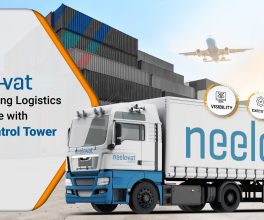
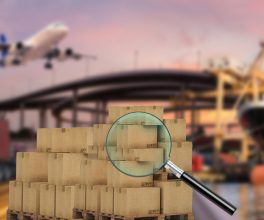
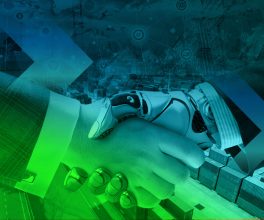



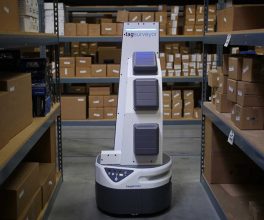
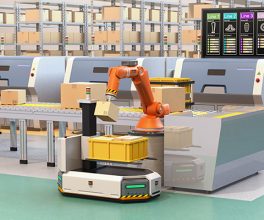
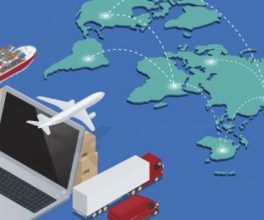
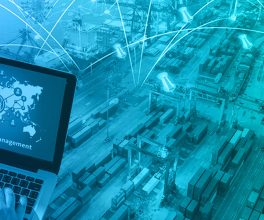

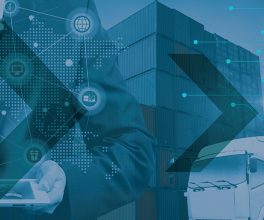
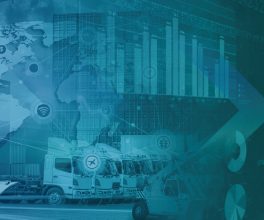





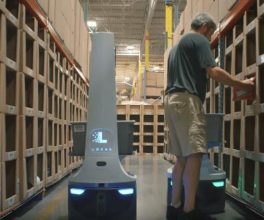

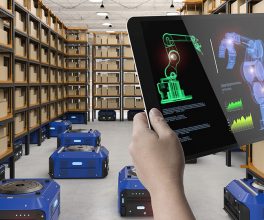
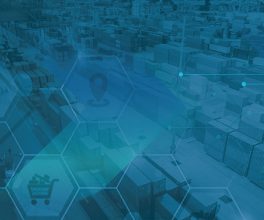





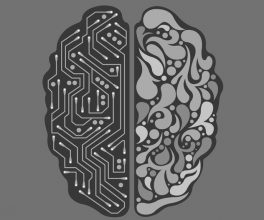
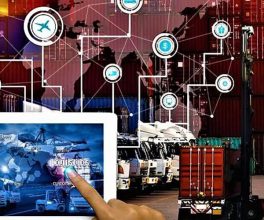


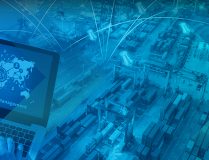
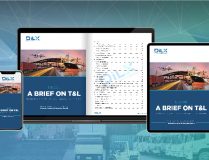
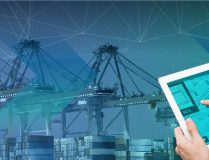

Very interesting article, thank you for sharing. I think Artificial Intelligence completely changed the logistics industry and what seemed impossible a few years ago has now become a reality. Recently I’ve read this article about AI in logistics – https://www.cleveroad.com/blog/problems-artificial-intelligence-solves-in-logistics and it says there are lots of startups in logistics that are based on Artificial Intelligence and all of them look really promising.